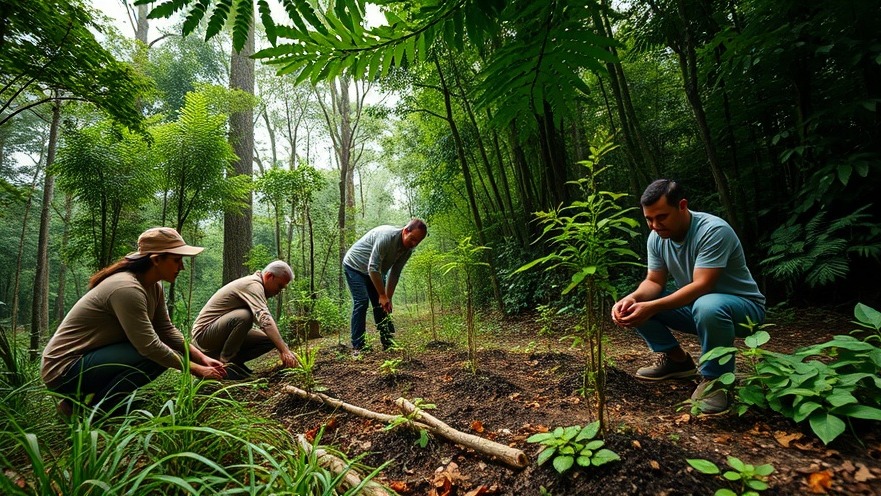
Investing in People: The Heart of Reforestation
As global awareness surrounding climate change becomes increasingly prevalent, the call for reforestation isn't just about planting trees—it's about nurturing communities. Boutique hospitality professionals, including small-scale hotel owners and eco-lodge operators, have a unique opportunity to invest in reforestation efforts that prioritize the needs and input of local communities. This approach is not only sustainable but also beneficial for their businesses.
Understanding the Social Dimensions of Reforestation
Reforestation initiatives that center around community engagement often witness higher success rates. Local populations possess invaluable knowledge about their ecosystems, which can enhance reforestation strategies. For boutique hospitality professionals, collaborating with these communities ensures that investments lead to stronger social ties and enhance the guest experience through authentic local involvement.
Beyond Carbon Offsetting: The Benefits of a Circular Economy
Implementing a circular economy model within the hospitality sector can significantly benefit boutique hotels and eco-lodges. By embracing a zero-waste philosophy, operators can not only diminish their supply chain impacts but also promote sustainable practices among their guests. From using sustainable packaging for amenities to reducing food waste in kitchens, these businesses can lead the charge in environmental stewardship.
The Role of Corporate Social Responsibility in Eco-Travel
Today’s travelers are increasingly concerned with sustainability. A robust Corporate Social Responsibility (CSR) strategy signals to customers that a hospitality business is committed to social and environmental well-being. Boutique hotels can incorporate reforestation into their CSR efforts by directly investing in local projects, which can enhance brand loyalty and attract eco-conscious tourists.
Regenerative Business Practices: Building a Sustainable Future
For boutique hospitality entrepreneurs, adopting regenerative business practices means designing operations that restore ecological balance while serving community welfare. This might include setting up partnerships with local farmers, sourcing organic supplies, and investing in renewable energy solutions. Such actions not only help eliminate waste but also position these businesses as leaders in sustainable innovation.
Practical Steps for Engaging with Reforestation
So how can boutique hospitality professionals take actionable steps towards meaningful reforestation? Start by researching local initiatives or organizations that focus on reforestation efforts. Engage with these groups through sponsorships or volunteer programs that involve guests. Additionally, sharing the stories of these efforts through marketing can resonate with travelers looking for authentic, eco-friendly experiences.
The Long-Term Vision: Future-Proofing Your Business
Investing in reforestation and aligning it with the principles of a circular economy not only has immediate benefits but also secures future sustainability for hospitality businesses. As traveler preferences shift toward eco-friendliness, having a robust, community-centered ecological strategy will position these companies favorably in a competitive market.
To truly harness the benefits of these investments, boutique hospitality professionals must act decisively. It’s time to integrate reforestation with sustainable operations, leveraging their unique position within the hospitality industry to promote environmental and social harmony.
 Add Row
Add Row  Add
Add 




Write A Comment